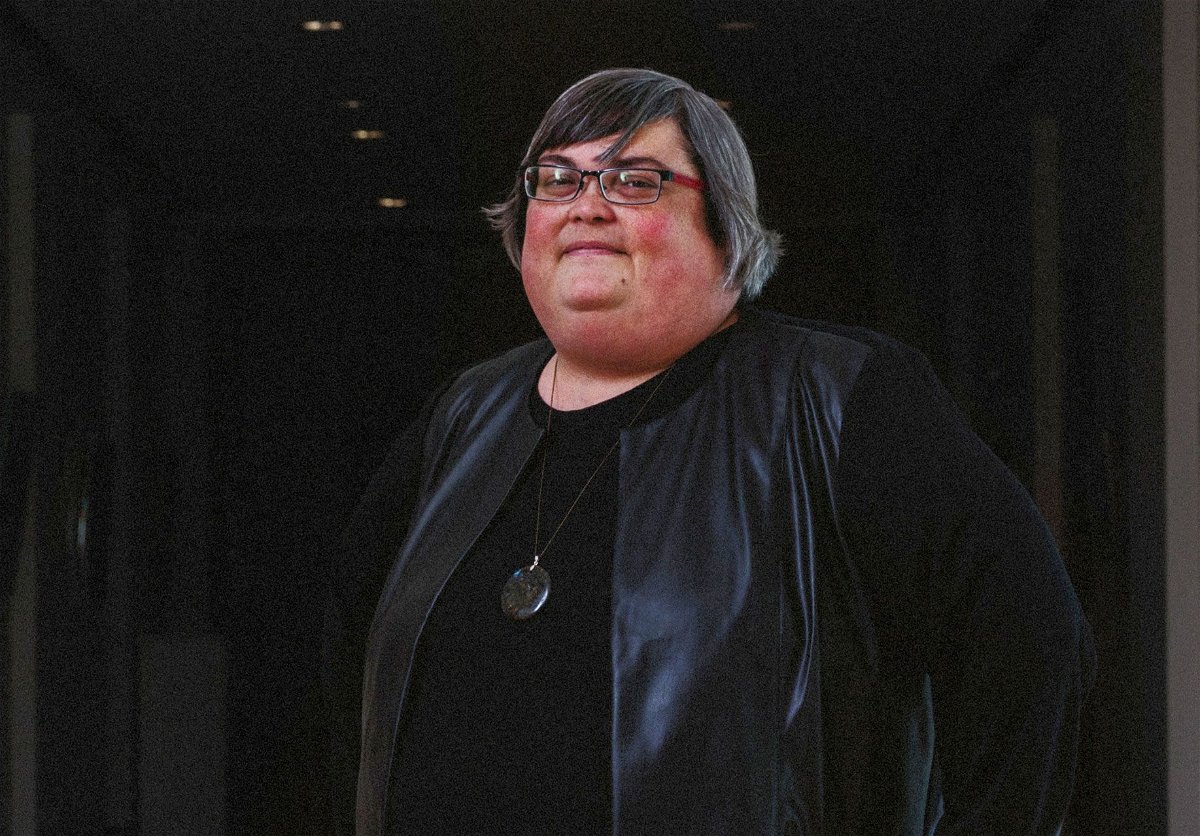CNN
By Donie O’Sullivan and Clare Duffy, CNN
(CNN) — A nationally recognized online disinformation researcher has accused Harvard University of shutting down the project she led to protect its relationship with mega-donor and Facebook founder Mark Zuckerberg.
The allegations, made by Dr. Joan Donovan, raise questions about the influence the tech giant might have over seemingly independent research. Facebook’s parent company Meta has long sought to defend itself against research that implicates it in harming society: from the proliferation of election disinformation to creating addictive habits in children. Details of the disclosure were first reported by The Washington Post.
Beginning in 2018, Donovan worked for the Shorenstein Center at Harvard University’s John F. Kennedy School of Government, and ran its Technology and Social Change Research Project, where she led studies of media manipulation campaigns. But last year Harvard informed Donovan it was shutting the project down, Donovan claims.
In a disclosure sent last week to Harvard leaders and US Education Secretary Miguel Cardona and made public on Monday, Donovan alleges that the University began restricting her research after the Chan Zuckerberg Initiative donated $500 million to fund a new university-wide center on artificial intelligence. The Chan Zuckerberg Initiative is the philanthropy run by Zuckerberg and his wife, Priscilla Chan, who both attended Harvard.
Harvard is strongly disputing Dr. Donovan’s claims. James Francis Smith, a spokesperson for the university said in a statement to CNN Monday, “allegations of unfair treatment and donor interference are false. The narrative is full of inaccuracies and baseless insinuations, particularly the suggestion that Harvard Kennedy School allowed Facebook to dictate its approach to research.”
“By longstanding policy to uphold academic standards, all research projects at Harvard Kennedy School need to be led by faculty members. Joan Donovan was hired as a staff member (not a faculty member) to manage a media manipulation project. When the original faculty leader of the project left Harvard, the School tried for some time to identify another faculty member who had time and interest to lead the project. After that effort did not succeed, the project was given more than a year to wind down. Joan Donovan was not fired, and most members of the research team chose to remain at the School in new roles,” he said.
He added that Harvard continues to research misinformation and social media’s role in it, pointing out Harvard hosts and made available to the public the Facebook documents leaked by former Facebook employee Frances Haugen in a separate whistleblower complaint in October 2021, known as the “Facebook Papers.” Harvard also runs an academic journal on misinformation.
The Chan Zuckerberg Initiative said it had no involvement in Donovan’s departure from Harvard.
“CZI … was unaware of that development before public reporting on it,” a Chan Zuckerberg Initiative spokesperson said in a statement.
Meta declined to comment. CNN has also reached out to the US Department of Education. The Massachusetts Attorney General’s office said it had received the disclosure and was reviewing it.
The Chan Zuckerberg Initiative donation came shortly after Haugen’s blockbuster complaint, the disclosure states. Following the release of the Facebook Papers, Donovan was involved in an effort to help archive the documents and make them publicly available to researchers, students, policymakers and journalists.
“This is a shocking betrayal of Harvard’s academic integrity and the public interest,” Libby Liu, the CEO of Whistleblower Aid, a nonprofit legal group that previously worked with the Facebook whistleblower Frances Haugen.
The disclosure, which was sent on Donovan’s behalf by Whistleblower Aid and is addressed to Harvard President Claudine Gay, Harvard General Counsel and Vice President Diane Lopez and Cardona, seeks an investigation into the Kennedy School’s activity and “all appropriate corrective action” to protect academic freedom.
“We’ve seen in the past how Big Tobacco, Big Energy and Big Pharma have succeeded in influencing, undermining, and co-opting research to protect their lies, their profits and evade accountability. Now Meta, with the complicity of a powerful ally, is following the same playbook,” Liu said. “Whether Harvard acted at the company’s direction or took the initiative on their own to protect Meta’s interests, the outcome is the same: corporate interests are undermining research and academic freedom to the detriment of the public.”
Donovan joined the Shorenstein Center in 2018. During Donovan’s time at Harvard, the center released research reports about online Covid-19 and other medical misinformation campaigns; Donovan published the book “Meme Wars” about how far-right actors use online memes to undermine American democracy; and Donovan testified before House and Senate subcommittees about online misinformation and how social media algorithms can shape societal discourse. Donovan has also frequently been cited as an expert in online information manipulation in news reports, including by CNN.
In February, the student-led Harvard Crimson reported that the Kennedy School was ending Donovan’s Technology and Social Change Project and restricting Donovan from raising new funding or conducting additional hiring. At the time, the school pointed to a rule that required such projects to be led by faculty members, which Donovan was not.
In August, Donovan announced that she would join Boston University’s College of Communication as an assistant professor, officially ending her affiliation with Harvard Kennedy School. She told the Crimson that she “had to leave” because she felt the Kennedy School “didn’t back me as a scholar.”
This story has been updated with additional developments.
The-CNN-Wire
™ & © 2023 Cable News Network, Inc., a Warner Bros. Discovery Company. All rights reserved.

